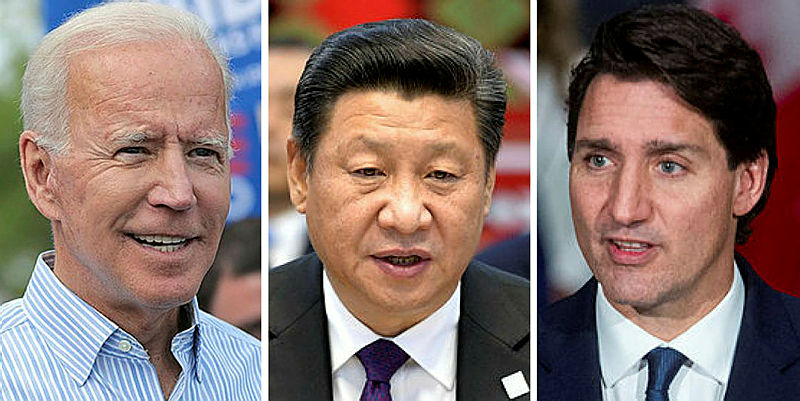Still, say analysts, there are strong reasons to manage the disagreement. The question now is when, not whether, they find their way back to the negotiating table.
Southeast Asia represents an important region to expand North American farm exports, and both the U.S. and Canada intend to work on reducing trade barriers through the Indo-Pacific negotiations.
“Secretary Blinken … talked about postponing the trip, not canceling it or ending all foreseeable high-level communication with the Chinese government,” U.S. National Security Adviser Jake Sullivan said last week. “That is not going to happen.”
China wants to revive its economy, still reeling from the crushing zero-Covid policy. To that end, Chinese President Xi Jinping hopes to improve relations that hit a dangerous low in August with the visit to Taiwan.
OUTRAGE AND HYPOCRISY
Restarting talks won’t be easy. The balloon flight caused outrage in Washington and Ottawa, with politicians on both sides of the border being for failing to shoot it down when it first entered North American airspace.
China’s foreign ministry has reacted angrily to spying allegations, saying the balloon was a civilian research craft.
This doesn’t mean re-engagement can’t happen, however.
“While it’s all too common for the Chinese to refuse to engage when it is needed the most — in a crisis — that doesn’t mean the Chinese have given up on their effort to buy time by calming relations with the West,” said Daniel Russel, the top U.S. diplomat for East Asia under former President Barack Obama.
Biden and Trudeau agreed the balloon needed to be shot down, but has played down both the security threat and the impact on China relations.
On Thursday, Biden said the incident was not a major security breach while noting that “the total amount of intelligence gathering that’s going on by every country around the world is overwhelming.”
GIVE TALKS A CHANCE
Short of a high-level visit, there are opportunities for diplomacy. In a report from Berlin, Politico cited diplomats as saying that China’s top diplomat Wang Yi, would attend this year’s Munich Security Conference, which is slated for Feb. 17-19.
Bonnie Glaser, an Asia expert at the German Marshall Fund of the United States, cautioned that domestic pressures may mean it is too early to re-engage diplomatic channels.
“The Chinese don’t want to look weak and they probably don’t want to admit that they lied about the balloon.”












